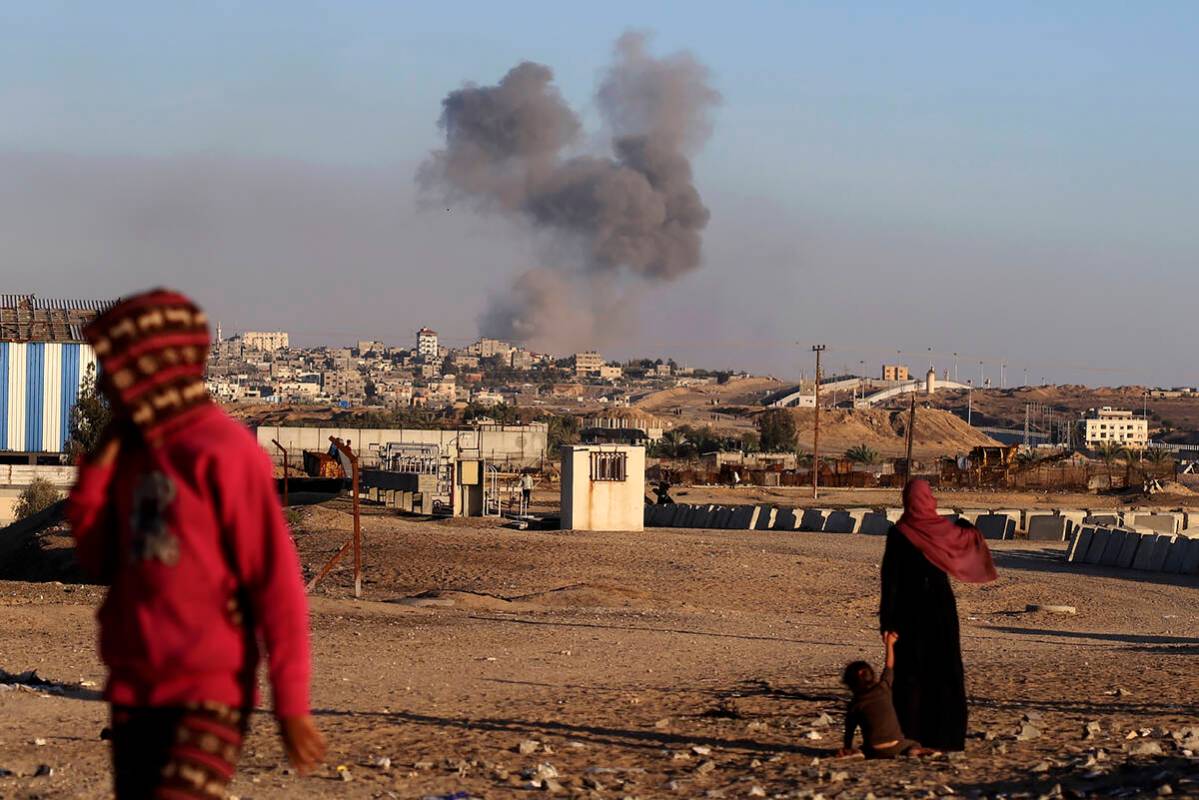Israel reopens crossing into Gaza; UN says no aid entering

JERUSALEM — The Israeli military said Wednesday that it has reopened its Kerem Shalom crossing into Gaza after days of closure, but the U.N. said no humanitarian aid has yet entered and there is no one to receive it on the Palestinian side after workers fled during Israel’s military incursion in the area.
The Kerem Shalom crossing between Gaza and Israel was closed over the weekend after a Hamas rocket attack killed four Israeli soldiers nearby, and on Tuesday, an Israeli tank brigade seized the nearby Rafah crossing between Gaza and Egypt, forcing its closure.
The Israeli foray did not appear to be the start of the full-scale invasion of the city of Rafah that Israel has repeatedly promised. But aid officials warn that the prolonged closure of the two crossings could cause the collapse of aid operations.
The U.S., Egypt and Qatar are ramping up efforts to close the gaps in a possible agreement for at least a temporary cease-fire and the release of some of the scores of Israeli hostages still held by Hamas. Israel has linked the threatened Rafah operation to the fate of those negotiations. CIA chief William Burns, who has been shuttling around the region for talks on the cease-fire deal, met Wednesday with Israeli Prime Minister Benjamin Netanyahu, a U.S. official said, speaking on condition of anonymity to discuss closed-door negotiations.
With the seizure of Rafah, Israel now controls all of Gaza’s crossings for the first time since it withdrew troops and settlers from the territory nearly two decades ago, though it has maintained a blockade with Egypt’s cooperation for most of that time. The Rafah crossing has been a vital conduit for humanitarian aid since the start of the war and is the only place where people can enter and exit. Kerem Shalom is Gaza’s main cargo terminal.
U.N. World Food Program deputy executive director Carl Skau told The Associated Press that the U.N. agency has lost access to its Gaza food warehouse in Rafah, which he said was “communicated as a no-go zone.”
“We understand that it’s still there, but we are extremely worried of looting,” Skau said during a visit to neighboring Lebanon, adding that a U.N. logistics warehouse in Rafah had already been looted. He said the WFP was able to secure a warehouse in Deir al-Balah, in central Gaza, but has not stocked it with food yet.
Video of aid trucks released
Associated Press journalists heard sporadic explosions and gunfire in the area of the Rafah crossing overnight, including two large blasts early Wednesday. The Israeli military reported six launches from Rafah toward the Kerem Shalom crossing on Tuesday.
COGAT, the Israeli military body in charge of Palestinian civilian affairs, said the Kerem Shalom crossing reopened early Wednesday and released video of what it said were aid trucks entering the half-mile area of the crossing. The video then showed their cargo being unloaded.
Typically, Palestinian drivers from the other side of the crossing must pick up the aid after it is unloaded and drive it to distribution destinations within Gaza. The video did not show the aid being picked up.
Juliette Touma, the director of communications for UNRWA, said no aid had entered as of late afternoon Wednesday and that the U.N. agency had been forced to ration fuel, which is imported through Rafah.
U.N. agencies and aid groups have ramped up humanitarian assistance in recent weeks as Israel has lifted some restrictions and opened an additional crossing in the north under pressure from the United States, its closest ally.
But aid workers say the closure of Rafah, which is the only gateway for the entry of fuel for trucks and generators, could have severe repercussions.
COGAT said 60 aid trucks entered through the northern crossing on Tuesday.
The war began when Hamas terrorists breached Israel’s defenses on Oct. 7 and swept through nearby army bases and farming communities, killing some 1,200 people, mostly civilians, and abducting another 250. Hamas is still believed to be holding around 100 hostages and the remains of more than 30 others after most of the rest were released during a November cease-fire.
The war has killed over 34,800 Palestinians, according to the Hamas-run Health Ministry in Gaza.
Magdy reported from Cairo and Lidman from Tel Aviv, Israel. Associated Press journalists Aamer Madhani and Zeke Miller in Washington, Kareem Chehayeb in Beirut and Julia Frankel in Beirut contributed.